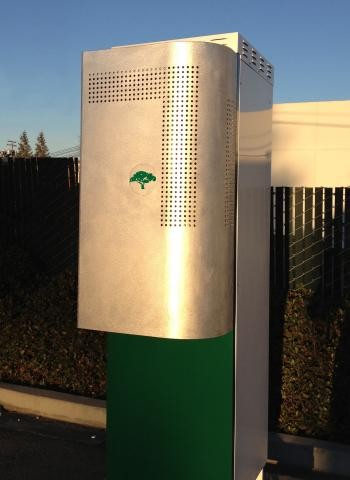Why Big Energy Companies Want To Invest In Energy Storage Startups
Post on: 16 Март, 2015 No Comment

Follow Comments Following Comments Unfollow Comments
Stem, a California energy storage service startup, has lined up Constellation Technology Ventures and Total Total Energy Ventures as investors and added $12 million to its previously announced $15 million Series B, the company said Wednesday.
The addition of these two investors reflect the growing interest by big energy companies in the emerging energy storage market, where large battery systems are installed at homes or businesses to provide backup power or reduce the amount of electricity taken from the grid when electric rates are high. The start of California’s energy storage program. in which utilities are required to buy 1,325 megawatts of energy storage services by 2020, is also helping to jump-start the market.
Total Energy Ventures is an investment arm of French oil and gas giant, which is a majority owner of SunPower SunPower and has invested in Sunverge Energy. an energy storage service provider. Constellation Technology Ventures. which has invested in solar and electric car charging technology startups. is part of U.S.-based Exelon Exelon Corp. which produces and sells electricity, including solar and wind, in the wholesale and retail markets.
Stem sells energy storage services to businesses, which pays a monthly fee for Stem to manage their electricity consumption. Stem installs battery systems on customers’ properties, and its software charges the batteries when electric rates are low and discharge the batteries to run the customers’ offices and buildings when the rates are high. Its competitors include SolarCity and Green Charge Networks.
The startup plans to use the new equity round to do more software development, line up new customers and expand internationally, said John Carrington, Stem’s CEO. The company plans to talk about its foray into Japan over the next few months, he said.
The energy storage market is set to get a boost in Japan in 2016, when it plans to launch a demand response program in which utilities will pay their customers for allowing them to cut the amount of energy delivered when electricity demand overall is high, such as during a hot summer afternoon. Similar programs already are in place in parts of the U.S. Businesses with batteries could make use of the stored electricity onsite while they get paid for taking less electricity from their utilities.
“We are excited about all those opportunities,” Carrington said.














